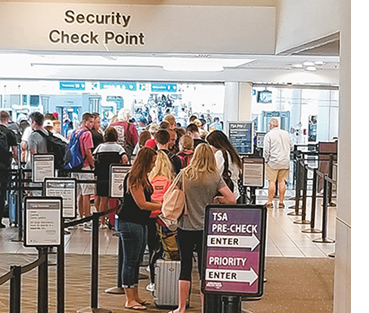How to Prevent Being Kidnapped
 Kidnapping is a harrowing crime that leaves both the victim and their loved ones traumatized. Fortunately, there are several precautions individuals can take to minimize the likelihood of falling prey to kidnappers. Herein, we delve into various strategies to prevent being kidnapped and safeguard personal security.
Kidnapping is a harrowing crime that leaves both the victim and their loved ones traumatized. Fortunately, there are several precautions individuals can take to minimize the likelihood of falling prey to kidnappers. Herein, we delve into various strategies to prevent being kidnapped and safeguard personal security.
Awareness of Surroundings
One of the most effective ways to prevent kidnapping is by maintaining constant awareness of one's environment. Pay attention to people, vehicles, and activities around you, particularly in unfamiliar areas or during late hours. Avoid walking alone in deserted places, parks, or poorly lit streets. Whenever possible, stick to populated routes and utilize well-lit pathways. Moreover, refrain from wearing headphones or engaging in distracting activities like texting while navigating through public spaces.
Secure Personal Information
Refrain from disclosing sensitive data such as home address, phone number, or travel plans openly. Conduct financial transactions privately and secure personal documents safely. Shred unnecessary papers containing confidential information before discarding them. Regularly monitor credit reports for unusual activity indicative of identity theft, which could facilitate stalking or targeting.
Vehicle Safety Measures
Always lock car doors and roll up windows completely upon entering the vehicle. Never leave valuables visible inside the car, even for short periods. Park in well-lit areas and check the backseat before getting in. When driving, keep distance from suspicious vehicles following too closely. Utilize trusted parking facilities rather than isolated spots off main roads.
Home Security
Install sturdy deadbolts on exterior doors and reinforce sliding glass doors against forced entry. Use motion sensor lights around the house perimeter and trim shrubbery concealing entrances. Consider installing a monitored alarm system and surveillance cameras. Limit access to private residences by screening service providers thoroughly and supervising deliveries whenever necessary.
Travel Precautions
Research destination countries' crime rates, political climate, and cultural norms before embarking on international trips. Register with the U.S. Department of State's Smart Traveler Enrollment Program (STEP) to receive alerts regarding potential threats abroad. Opt for reputable transportation services and hotels, avoiding shared rides or accommodations offering discounted rates suspiciously low. Keep luggage tags concealed and carry minimal cash.
Online Presence Management
Limit online presence by restricting publicly accessible personal data on social media profiles. Refrain from posting real-time updates about current locations or future travel plans. Regularly review privacy settings and disable geotagging features on smartphone applications. Exercise caution when accepting friend requests or interacting with strangers online.
Self-Defense Training
Enroll in martial arts classes or workshops teaching practical self-defense techniques suitable for different scenarios. Learn how to use pepper spray, pepper gun, stun gun, TASER, knife, steel batons, self-defense keychain, and personal alarms effectively and carry them within reach. Develop situational awareness skills to detect early signs of danger and react accordingly.
Establish Safe Routes and Contacts
Identify safe havens along regular commute paths, such as police stations, fire departments, hospitals, or busy commercial centers. Cultivate relationships with trustworthy neighbors who can keep an eye out for unusual activities near homes. Create emergency contacts list comprising reliable individuals to notify during crisis situations.
Child Safety Measures
Teach children basic safety rules, including stranger danger, identifying safe adults, and reporting incidents promptly. Implement codes words known only among family members for unexpected situations requiring assistance. Accompany young kids to school bus stops and wait until they board safely. Monitor adolescents' digital footprints and teach responsible internet usage habits.
Workplace Safety Policies
Advocate for comprehensive workplace safety policies addressing employee protection against harassment, assault, and kidnapping risks. Encourage management to provide self-defense training sessions and implement background checks for new hires. Promote open communication channels enabling employees to report concerns confidentially.
While complete immunity from kidnapping remains unattainable, adhering to these guidelines substantially reduces vulnerability. Prioritizing personal safety fosters peace of mind, empowering individuals to live fulfilling lives free from undue fear. By incorporating these practices into daily routines, everyone can contribute to reducing criminal opportunism and promoting communal wellbeing.




























